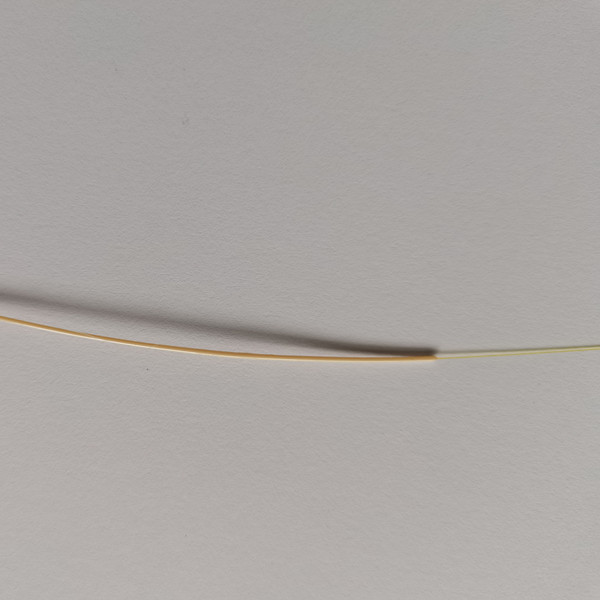
fibre cable | PEEK Reinforced Optical Fiber Wire
CITCABLE: PEEK Reinforced Optical Fiber Wire For Sensing and Communication
Temperature Range: -196°C to +260°C, short 300°C
it's meeting the special application requirements of the optical fibre in the radiation environment, the multi-mode fibre with radiation resistance is developed by adjusting the optical fibre components and improving the process technology. This fibre has graded refractive index profile, which fully optimizes the waveguide characteristics of 850nm & 1300nm operating wavelength, and has very low attenuation and high bandwidth. CITCABLE radiation resistant multi-mode fibres have 50μm core, Besides, CITCABLE also can make customized tight-buffered radiation resistant multi-mode fibre.

CITCABLE PEEK coating process to stabilize PEEK during extreme temperature fluctuations. This stabilization allows the optical fiber to retain PEEK’s strain transfer and optical properties while being free of compression-induced attenuation normally seen during temperature changes. CITCABLE PEEK reinforced optical fiber is ruggedized to protect against abrasion and physical trauma to reduce failures and extend the life of the fiber.
PEEK Coating one of the highest strength-to-weight ratios of any thermoplastic, making it especially beneficial for the aerospace industry for fire detection systems. With an upper working temperature of 260 °C, short time 300°C .CITCABLE PEEK reinforced optical fiber wire can go in many places where other fiber,Chemicals and steam do not affect PEEK’s performance, and PEEK is also radiation resistant for applications in the nuclear industry. PEEK’s ability to tolerate multiple sterilization methods and cycles has also made it especially popular in medical, aerospace,nuclear applications.
PEEK reinforced optical fiber is available in multiple fiber types, including single-mode and multimode as well as SM and MM pure silica core versions. Other polymer coatings are available for our optical fiber. Contact us for more information
Low attenuation and low dispersion can be achieved.
CITCABLE A B C
| According to Standard TIA/EIA 455-64 (dB/100m) |
1310 | Total dose 50Krad dose rate 0.1rad/s(25℃) induced attenuation |
-- | ≤ 0.3 | ≤ 0.3 |
| 1310, 1550 | Total dose 2000Gy dose rate 0.5Gy/s(25℃) induced attenuation |
≤ 0.9 | ≤ 0.8 | ≤ 0.8 | |
| 1310, 1550 | Total dose 200000Gy dose rate 0.5Gy/s(25℃) induced attenuation |
≤ 2.5 | ≤ 2.0 | ≤ |
